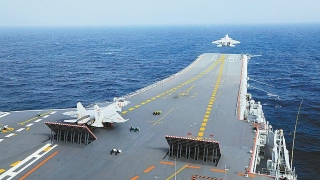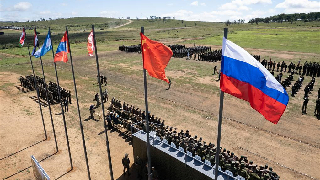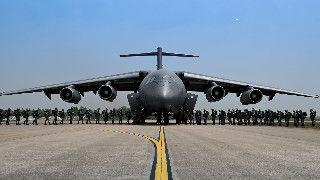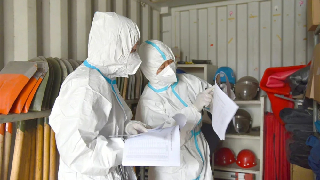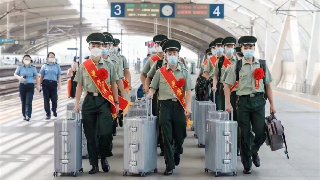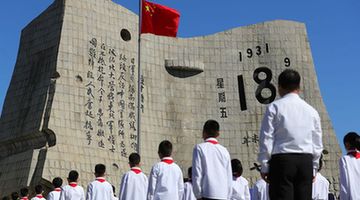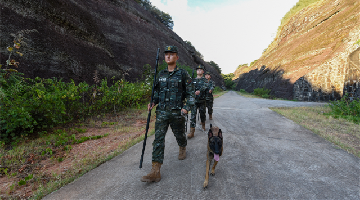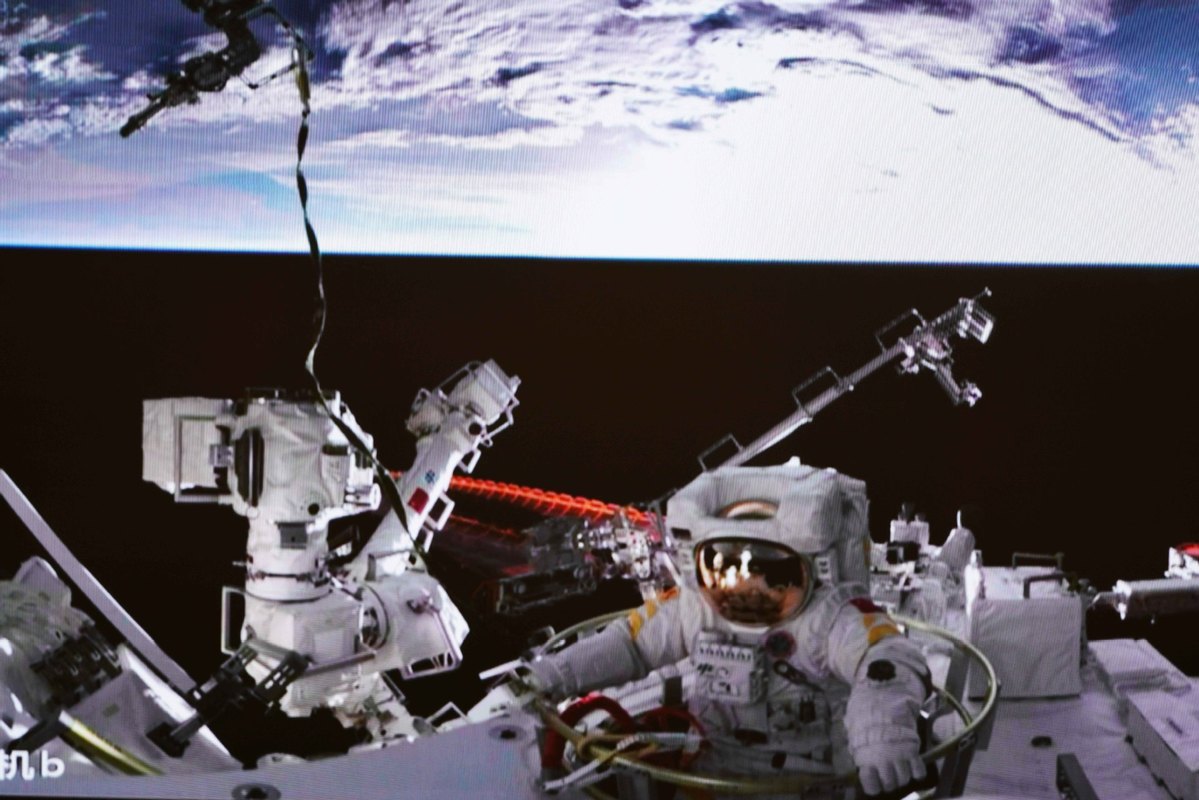
Chinese astronauts on the Shenzhou XIV mission completed their second spacewalk on Saturday afternoon, according to the China Manned Space Agency.
Senior Colonel Cai Xuzhe opened an extravehicular hatch on the Tiangong space station at 1:35 pm and stepped into space. He was followed by mission commander Senior Colonel Chen Dong, the agency said.
Senior Colonel Liu Yang, the female crew member, stayed inside to support the operation.
Cai and Chen installed an extended pump set, verified a plan for extravehicular emergency rescue during the spacewalk and returned into the station by 5:47 pm.
The four-hour spacewalk enabled astronauts to test whether the robotic arm on the station's Wentian lab module worked properly and also to check the performance of spacewalk-support apparatus, it said.
This was the seventh spacewalk by Chinese astronauts.
Tiangong now has four parts-the Tianhe core module, Wentian space lab, Tianzhou 4 cargo ship and Shenzhou XIV spacecraft.
Chen and Liu made the Shenzhou XIV mission's first spacewalk on Sept 1, working six hours outside the Tiangong station. Cai remained inside the station to provide technical assistance.
That was the first time astronauts used the Wentian lab module's airlock cabin to make a spacewalk.
During previous missions, crews used the Tianhe core module's airlock cabin for that purpose.
Wang Chunhui, a senior engineer at the Astronaut Center of China, told China Central Television that spacewalks are an indispensable part of a space station's long-term operations because instruments outside the station need to be maintained, adjusted and repaired by astronauts.
Wang said that the Shenzhou XIV astronauts improved the plan for their second spacewalk based on the experience they gained from the first.
Similarly, ground controllers optimized some of the operation's steps, she said.
Pang Zhihao, a retired researcher at the China Academy of Space Technology, said on Sunday that Chinese astronauts have become familiar with extravehicular operations so they will take less time than expected to complete tasks.
In addition, astronauts on future flights will conduct more spacewalks during each mission and their maneuvers will be more sophisticated and challenging, he said.
By Sunday, Chen and his teammates had spent 105 days in orbit and had engaged in a series of tasks, such as installing new devices outside the station, testing equipment and conducting scientific experiments.
The crew arrived aboard Tiangong on the evening of June 5. Next month, the astronauts will prepare for the Mengtian space lab, which is scheduled to be launched in late October, to become part of the Tiangong station, mission planners said.
